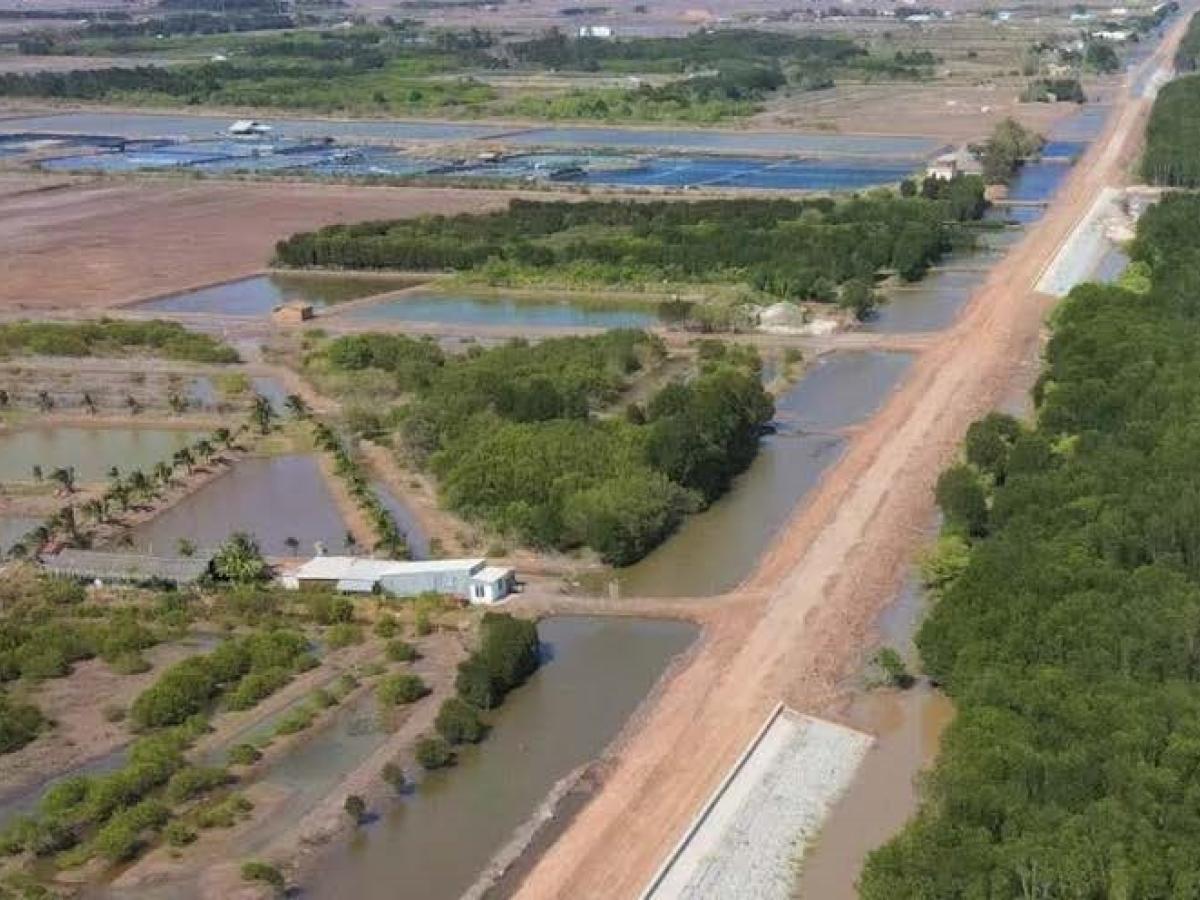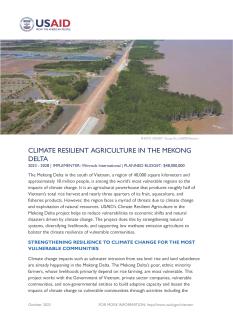2023 - 2028 | IMPLEMENTER: Winrock International | PLANNED BUDGET: $48,000,000
The Mekong Delta in the south of Vietnam, a region of 40,000 square kilometers and approximately 18 million people, is among the world’s most vulnerable regions to the impacts of climate change. It is an agricultural powerhouse that produces roughly half of Vietnam’s total rice harvest and nearly three quarters of its fruit, aquaculture, and fisheries products. However, the region faces a myriad of threats due to climate change and exploitation of natural resources. USAID’s Climate Resilient Agriculture in the Mekong Delta project helps to reduce vulnerabilities to economic shifts and natural disasters driven by climate change. The project does this by strengthening natural systems, diversifying livelihoods, and supporting low methane emission agriculture to bolster the climate resilience of vulnerable communities.
STRENGTHENING RESILIENCE TO CLIMATE CHANGE FOR THE MOST VULNERABLE COMMUNITIES
Climate change impacts such as saltwater intrusion from sea level rise and land subsidence are already happening in the Mekong Delta. The Mekong Delta’s poor, ethnic minority farmers, whose livelihoods primarily depend on rice farming, are most vulnerable. This project works with the Government of Vietnam, private sector companies, vulnerable communities, and non-governmental entities to build adaptive capacity and lessen the impacts of climate change to vulnerable communities through activities including the development of alternative livelihoods and improving farming practices.
STRENGTHENING MANAGEMENT AND RESTORATION OF NATURAL ECOSYSTEMS
The Mekong’s natural systems, including mangrove forests, natural floodplains, and melaleuca forests, play critical roles in regulating local climate and aquatic ecosystems, protecting biodiversity and the coasts, and supporting communities' livelihoods. Upstream dams and dikes, sand mining, and excessive groundwater pumping have caused significant disruptions to the region’s freshwater hydrological system and environmental degradation. To address this, the project works collaboratively with partners such as communities, private sector companies, and government authorities to strengthen conservation of the remaining mangroves, terrestrial forests, wetlands, and melaleuca forests, replant degraded forests, and restore natural wetland ecosystems in the Mekong Delta to increase the provision of ecosystem goods and services.
REDUCING METHANE EMISSIONS FROM AGRICULTURE
The Government of Vietnam has joined the Global Methane Pledge to reduce methane emissions by 30% by 2030 compared to the 2020 level. Rice production accounts for over 40% of Vietnam’s total methane emissions and plays a crucial role in meeting this target. The project works with the Government of Vietnam, private companies, and rice producers to implement suitable interventions to reduce methane emissions in selected provinces. Through the project, USAID plans to support converting rice-producing lands to horticulture and aquaculture, transitioning to fertilizers that emit less greenhouse gas emissions, and improving water and straw management practices in rice fields.
IMPACT
The project will help 1,500 vulnerable communities in the Mekong Delta to adapt to climate change impacts and support 400,000 people to use climate information for timely decision making or to implement risk-reducing actions. It’s estimated that the project will improve conservation, restoration, and management of 250,000 hectares of natural ecosystems. In addition, more than 62,000 hectares of land will be transitioned to low-emission, sustainable crop production.
TARGETED LOCALITIES
The project works in the provinces of Dong Thap, Kien Giang, Ca Mau, Soc Trang, and Tra Vinh, and provides policy support at the national level to some extent.


